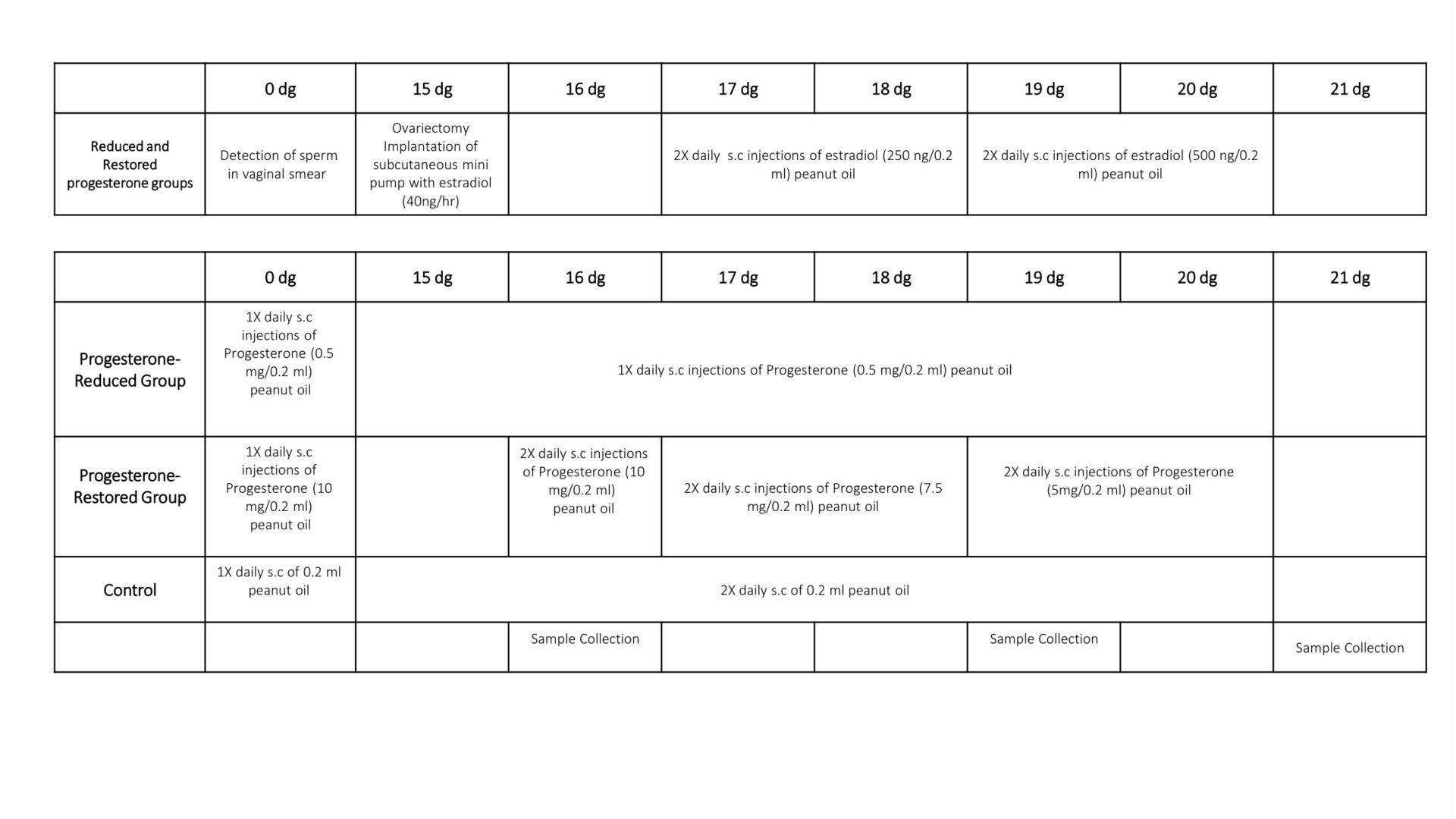Background: Progesterone is a vital hormone that maintains placental and fetal wellbeing during pregnancy. Progesterone has different effects in different tissues, where in some it induces proliferation, while in others it induces apoptosis. Since low levels of progesterone are correlated with smaller placentas and intrauterine growth restriction, we aim to evaluate apoptosis in different zones of the placenta in a model of progesterone withdrawal during pregnancy. Methodology: Sprague Dawley rats were used and divided into 3 groups (control, reduced-progesterone and restored-progesterone groups). On day 15 gestation (dg) ovariectomy was performed for reduced and restored progesterone groups, and a subcutaneous mini-pump was implanted to release estradiol (40 ng/hr). Estradiol was also injected twice daily on 17 and 18 dg (s.c. 250 ng in 0.2 ml peanut oil) and on 19 and 20 dg (500 ng in 0.2 ml peanut oil). The reduced progesterone group received approximately one third of the normal progesterone level detected at 22 dg. Progesterone was administered once at 15 dg and twice from 16 until 20 dg (s.c. 0.5 mg in 0.2 ml peanut oil). In the restored progesterone group, progesterone was administered once at 15 dg and twice at 16 dg (s.c. 10 mg in 0.2 ml peanut oil), twice at 17 dg (s.c. 7.5 mg in 0.2 ml peanut oil) and twice at 19-20 dg (s.c. 5 mg in 0.2 ml peanut oil). The control group received the same number of peanut oil injections as the experimental groups. Fetal and placental weights, maternal progesterone levels and gene and protein expressions of placental apoptotic (p53, Bax) and anti-apoptotic (Bcl2) markers were measure at 16, 19 and 21 dg. Results: The reduced-progesterone group showed reduction in basal zone and placental weights at 19 dg (18% and 16 %, respectively). Placental efficiency was also reduced by 16% in the reduced-progesterone group at 21 dg. The expression of the apoptotic markers p53 and Bax were significantly increased in both labyrinth and basal zones of the placenta. The anti-apoptotic marker, Bcl2, also showed a significant increase in both placental zones. Conclusion: Progesterone is essential for maintaining placental growth and significant reduction in its level results in smaller placentas with increased expression of apoptotic markers leading to pregnancy complications. But you have increases in apoptotic and antiapoptotic markers
Physiology 2023 (Harrogate, UK) (2023) Proc Physiol Soc 54, PCA033
Poster Communications: Reduced maternal progesterone level increases apoptosis in rodent placenta
Mariam Alawadhi1, Aseel Elfarra1, Maie Al-Bader1,
1Kuwait University Kuwait Kuwait, 2Health Science Center, Kuwait University Kuwait Kuwait, 3Department of Physiology, Faculty of Medicine, Health Sciences Center, Kuwait University Kuwait Kuwait,
View other abstracts by:
Where applicable, experiments conform with Society ethical requirements.

